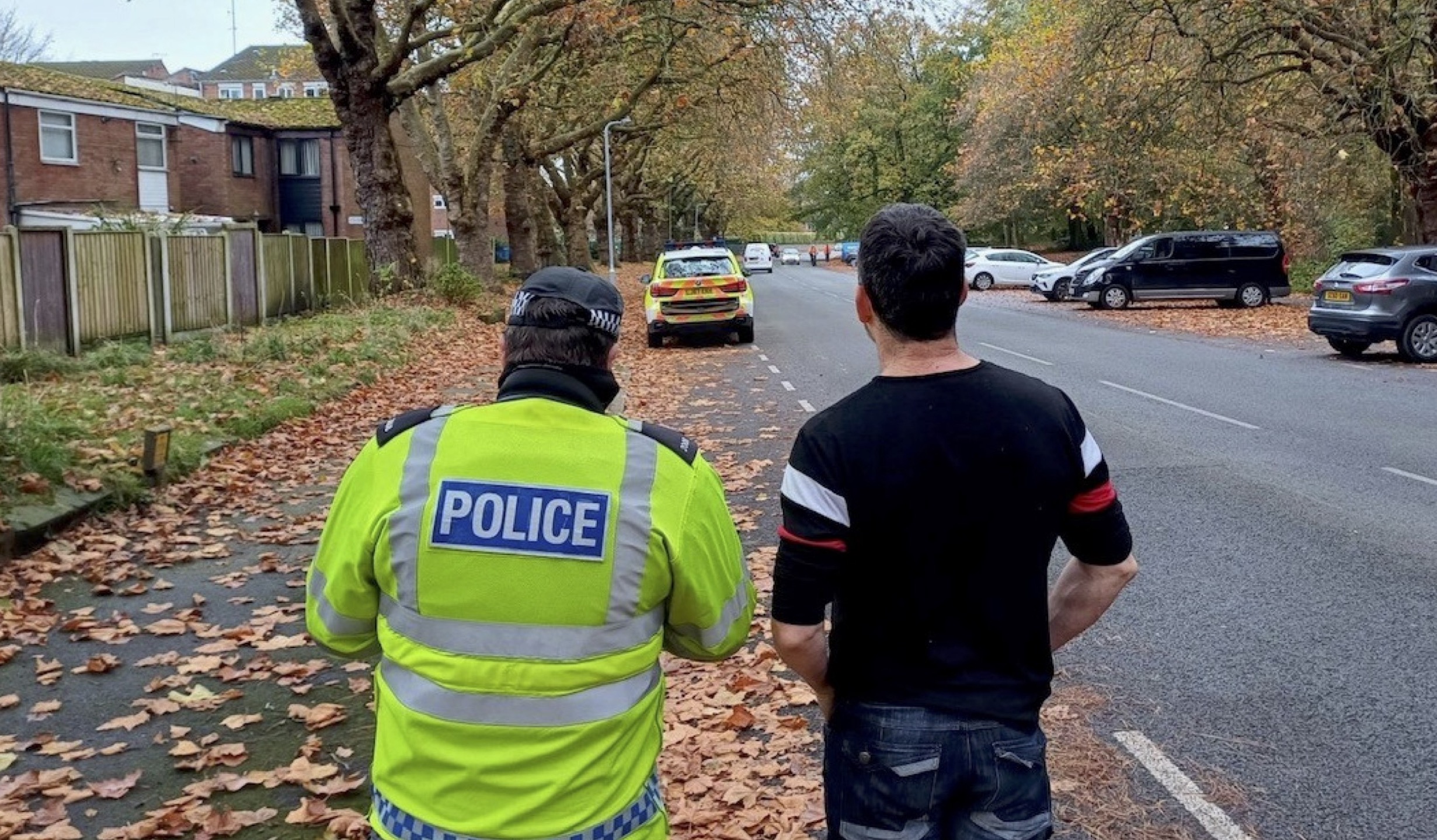Roadside vision checks “worrying”

Police checked more than 3,000 motorists (image courtesy of Merseyside Police)
As traffic sets to peak during the festive getaway, a new report from the National Police Chiefs Council (NPCC), the University of Warwick, the Older Drivers Forum and Eye Health UK aims to raise awareness of motorists’ responsibility to ensure their vision meets the minimum legal eyesight standards for driving.
Titled Is Your Vision Roadworthy?, the report was compiled after Operation Dark Night (Monday 28 October to Sunday 10 November 2024) during which 27 police forces across England and Wales submitted data for 3,010 roadside eyesight checks. Motorists were invited to read a car number plate from 20 metres away. All tests were conducted in good daylight and wearing prescription eyewear worn by the motorist when stopped.
The results revealed that:
- 1.7 per cent failed the number plate test – the equivalent of 720,642 motorists
- 3.2 per cent of all drivers stopped were issued police warnings or had their licence revoked
- 1.4 per cent of all drivers stopped had their driving licence revoked
- Thirty-eight revocations were immediate (on the spot), and six were pending, awaiting action from DVLA
- 40 per cent of motorists had not had a sight test in the last two years, as recommended
- One third of drivers had been prescribed corrective lenses for driving
- Half of drivers who failed the roadside sight test were not wearing their required spectacles when stopped by police
- The roadside test failure rate was highest amongst older drivers. 10.2 per cent of 81 to 90-year-olds failed
- Female drivers were slightly more likely to fail the number plate test than men (1.9 vs. 1.5 per cent)
- Failure rates increased with age: 10.2 per cent of 81 to 90-year-olds failed
David Cartwright, optometrist and chair of Eye Health UK, said: “Ninety per cent of information needed for driving is visual. Even a minor reduction in vision can slow reaction times and impair your ability to recognise hazards or judge speed. It can also cause fatigue and affect contrast sensitivity – essential for adjusting to glare and driving in low light conditions. Having regular eye tests, every two years or sooner if you notice a change in your vision is essential to keep you and other road users safe.”
Dr Carol Hawley of Warwick Medical School and CARGY Research analysed the roadside vision screening data for the report. She said: “Fortunately, the majority of drivers passed the test, but 96 drivers needed eyesight-related advice from officers. A third of all drivers stopped needed corrective glasses or lenses for driving, but worryingly 40 per cent of drivers had not had their eyesight checked for over two years.
“Fifty drivers failed the roadside test and alarmingly 50% of those prescribed glasses for driving were not wearing them when stopped. Some of these avoided a driving ban because they had their glasses in the vehicle and when wearing them passed a second attempt at the test.”
Offering practical advice for members of the public, Chief Constable Jo Shiner, NPCC Lead for Roads Policing, stated: “Personal responsibility is the starting point for safer drivers. Making sure your eyesight meets the standards of vision for driving is really important and something only you can do. If you have any doubts whatsoever about your sight please see an optician, this will keep you and all other road users safe while you are driving.”
For practical advice – and information about the legal eyesight standards and eye conditions that need to be notified to the DVLA/DVA – visit VisionAndDriving.info